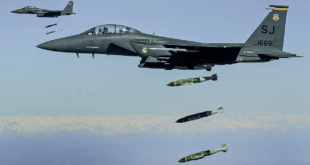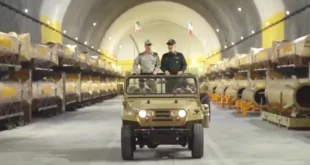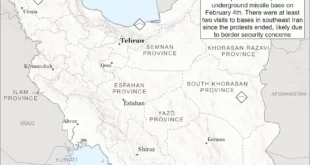 WASHINGTON (Reuters) – The United States and other major powers have begun preliminary consultations on a new set of U.N. sanctions related to Iran’s refusal to halt uranium enrichment, the State Department said on Tuesday.
WASHINGTON (Reuters) – The United States and other major powers have begun preliminary consultations on a new set of U.N. sanctions related to Iran’s refusal to halt uranium enrichment, the State Department said on Tuesday.
Spokesman Sean McCormack said he did not know when a sanctions resolution might be introduced in the U.N. Security Council but “we’re talking about elements of it right now.”
That was part of the discussions Undersecretary of State Nicholas Burns had when he visited Europe last week, McCormack said, giving no details.
The security council has adopted two sanctions resolutions since December, raising the pressure on Tehran each time.
But instead of halting enrichment, as the U.N. ordered, Iran has rapidly extended its program. Enrichment is a key nuclear process used in power-generation and bomb-building.
The second resolution, approved in March, goes beyond the nuclear sphere by banning Iranian exports of conventional arms and freezing financial assets abroad of 28 individuals and entities, including state-owned Bank Sepah and the commanders of the Revolutionary Guards.
Iran’s chief nuclear negotiator and the European Union’s foreign policy chief will meet for a new round of talks about Tehran’s nuclear program on Saturday in Lisbon, an Iranian news agency said on Tuesday.
The Mehr News Agency cited an official Iranian statement for the planned meeting in the Portuguese capital between Iran’s Ali Larijani and the EU’s Javier Solana.
In Brussels, Solana’s office could not confirm the date or place of any meeting, but McCormack at a news briefing acknowledged it would take place.
The last Larijani-Solana meeting in Madrid on May 31 yielded no breakthrough.
McCormack said the rationale behind another meeting is “that one hopes that the Iranian government and the Iranian regime starts to do a different cost-benefit analysis here. Clearly, they are much more isolated than they were one year ago.”
“So the idea is we’re going to continue through Mr. Solana talking to the Iranian government, encouraging them to find some way to say yes. And that involves, very simply, finding some way to suspend the Iranian enrichment and reprocessing activities in order to get into negotiations,” he said.
A senior U.S. official told Reuters there was no expectation the next meeting would break any new ground.
Iran says its program to produce nuclear fuel through uranium enrichment is solely for electricity generation, but Western powers suspect it wants to build bombs.
Although top U.S. officials have repeatedly asserted their commitment to resolving the nuclear issue through diplomacy, U.S. President George W. Bush on Tuesday reiterated that all options, including military action, were on the table over Iran.
 Eurasia Press & News
Eurasia Press & News



